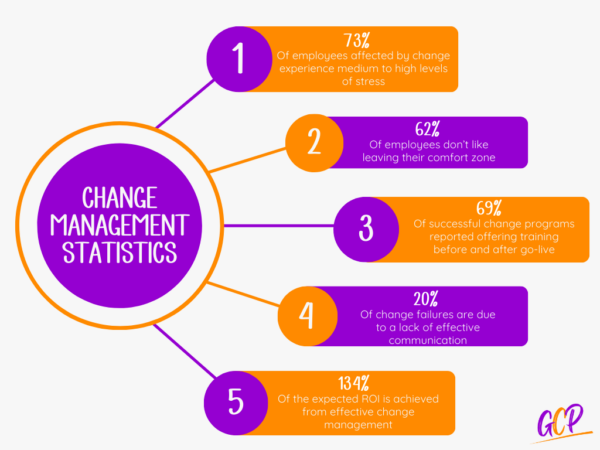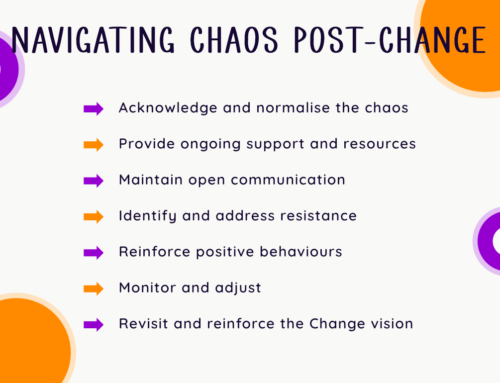
As corporations continually adjust and respond to the ever-transforming market environment, change management is also undergoing notable shifts. In 2024, the subsequent five trends are likely to shape the management and execution of organisation-wide change.
1. ENHANCED INCORPORATION OF TECHNOLOGY AND DIGITAL RESOURCES:
With processes increasingly becoming digitalised and automated, the utilisation of technology and digital tools will play a progressively crucial role in change management. This involves harnessing technologies like artificial intelligence, machine learning, and big data analytics to comprehend and forecast the effects of change on the business.
Additionally, the adoption of digital tools and collaboration platforms like Good Change People are pivotal for strengthening the efficiency and effectiveness of the change process. We also offer a Virtual Change Assistant, at a set price, to make Change Management more affordable for small businesses. Your Virtual Change Assistant can help you to help navigate any questions, communications, engagement and training requirements, whilst keeping your change goals on track.
2. AMPLIFIED FOCUS ON EMPLOYEE ENGAGEMENT AND EMPOWERMENT:
Recognising the significance of a positive and engaged workforce in change success, supervisors and project managers will intensify efforts to involve employees in the change process and empower them to embrace the implemented changes. This entails utilising employee groups as forums for creating positive workplace changes and involving them in decision-making processes, providing necessary support and resources for effective change management.
3. SHIFT TOWARDS AGILE AND ITERATIVE APPROACHES:
In the rapidly evolving business landscape, agility and responsiveness to change are imperative for staying competitive. This necessitates a departure from traditional, linear change management models towards agile and iterative methodologies like Scrum and Kanban. These approaches foster flexibility and adaptability throughout the change process.
4. INCREASED EMPHASIS ON LEADERSHIP IN CHANGE:
As change management gains complexity and significance in business success, there is a growing need for robust and effective leaders capable of navigating the challenges and opportunities inherent in change. This involves identifying and cultivating the required skills and competencies, as well as offering support and guidance to ensure leaders effectively lead and manage the change process.
5. FOCUS ON SUSTAINABILITY AND SOCIAL RESPONSIBILITY:
Organisations face mounting pressure to address issues such as climate change and social justice. Consequently, the integration of sustainability and social responsibility into the change process is becoming more pivotal. This involves evaluating the long-term impact of change on the organisation and its stakeholders, adopting a holistic approach that considers environmental, social, and economic impact.
Did this help? There’s a community full of great people on our platform – join us today to find out more!








Leave A Comment